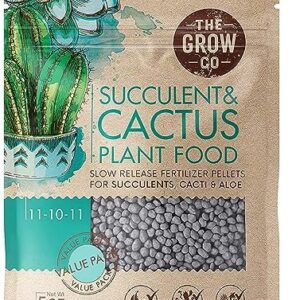Creating a Greener Garden: Tips for Eco-Friendly Gardening
As the world becomes more conscious of the environmental impact of our actions, many people are looking for ways to reduce their carbon footprint and live a more sustainable lifestyle. One area where we can make a big difference is in our own backyards – by creating a greener garden through eco-friendly gardening practices.
There are many simple and effective ways to make your garden more environmentally friendly. From using natural fertilizers to conserving water, here are some tips for creating a greener garden that will benefit both you and the planet.
One of the most important aspects of eco-friendly gardening is using natural and organic fertilizers. Synthetic fertilizers can be harmful to the environment, leaching chemicals into the soil and water supply. Instead, try using compost, manure, or other organic materials to nourish your plants. Not only are these options better for the environment, but they also provide essential nutrients to your plants in a slow-release, sustainable way.
In addition to using natural fertilizers, you can also promote healthy soil and reduce waste by practicing composting. Composting is a great way to recycle organic materials like food scraps and yard waste, turning them into nutrient-rich soil for your garden. By composting, you can reduce the amount of waste that ends up in landfills while also improving the health of your garden.
Another key aspect of eco-friendly gardening is conserving water. In many areas, water is a precious resource that should be used wisely. By using techniques like mulching, drip irrigation, and rainwater harvesting, you can reduce water waste in your garden and promote a healthier ecosystem. Mulching helps retain moisture in the soil, while drip irrigation delivers water directly to the roots of plants, avoiding evaporation and runoff. Rainwater harvesting involves collecting rainwater in barrels or tanks to be used for watering plants, reducing the need for tap water.
In addition to conserving water, you can also promote biodiversity in your garden by planting native species and avoiding the use of pesticides. Native plants are well-adapted to your local climate and soil, requiring less water and maintenance than exotic species. They also provide food and habitat for local wildlife, helping to support biodiversity in your garden. By avoiding the use of chemical pesticides, you can protect beneficial insects like bees and butterflies while also avoiding harmful effects on the environment.
One way to promote biodiversity and attract pollinators to your garden is to create a pollinator-friendly habitat. Pollinators like bees, butterflies, and hummingbirds play a crucial role in the reproduction of many plants, so by providing them with food sources and shelter, you can help support a healthy ecosystem. Planting a variety of nectar-rich flowers, providing nesting sites, and avoiding pesticides can all help create a welcoming environment for pollinators in your garden.
Another important aspect of eco-friendly gardening is reducing energy consumption. Using power tools like lawnmowers and leaf blowers can contribute to air and noise pollution, as well as increase your carbon footprint. Instead, consider using manual tools like a push mower or hand pruners, which require less energy and maintenance. You can also reduce energy consumption by using solar-powered lights, composting kitchen waste, and choosing energy-efficient options for garden appliances.
Overall, creating a greener garden through eco-friendly gardening practices is not only beneficial for the environment but also for your own health and well-being. By using natural fertilizers, conserving water, promoting biodiversity, and reducing energy consumption, you can create a sustainable oasis in your backyard that will be a source of beauty and tranquility for years to come. So get outside, get your hands dirty, and start creating a greener garden today!






